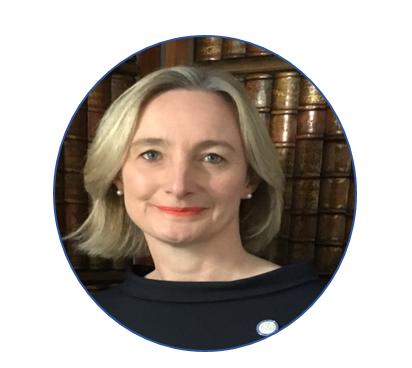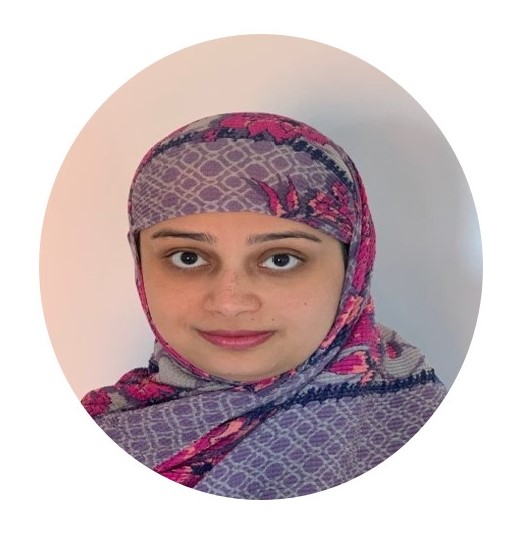International Women’s Day 2021 - #ChooseToChallenge
08 March 2021 (Last updated: 10 Mar 2021 12:47)
2021 presents an unprecedented time for women in surgery, exemplified by the fact that the BSSH, BAPRAS, BAAPS, and the ABS all currently have female Presidents, with a female Vice President Elect currently in post at the BOA. In order to celebrate this incredible milestone, each President has very kindly shared their experience as a woman in surgery, including how they have challenged and overcome certain expectations and stereotypes in their respective specialties, and their advice for future female surgeons. A female Trainee that they have worked with has also shared their own account to provide a comparison of experience between the generations.

Mary O’Brien -BAAPS President
Why did you choose to pursue a career in your surgery specialty?
Plastic Surgery is about function and form and additionally has an underlying psychological component that is so important to take into account when providing care for patients and optimising their outcome.
One of the joys of Plastic Surgery as a specialty is that it is not site specific but rather requires a set of skills both surgically and in terms of patient management that are diverse and transferable. There are so many opportunities for shaping the role, developing interests in particular areas and also working with colleagues from other disciplines to solve a range of problems with innovative solutions.
What (if any) challenges did you face regarding this decision?
As a medical student in the 1980s, I think the greatest challenge lay with me. I had a preconception that surgery was not a job for women and remember saying so to an eminent Professor at Guys Hospital who asked me if I was interested in pursuing surgery as a career which opened my eyes to this possibility.
What sort of challenges or stereotypes have you experienced as a woman in your field of work (if any)?
The practicalities of having a family at the same time as a career is certainly a challenge that I have experienced but this is not something exclusive to women. I feel that my family make more compromises than I do and it's because of their support that I am able to do my job as a Plastic Surgeon.
If encountered, how did you challenge/overcome them?
It is not unusual when my husband and I attend surgical professional dinners that he is often referred to as Mr O'Brien (O'Brien is my professional name, not married name) which he fortunately takes in good humour! Several years ago at a conference in New Zealand he found himself on the "Accompanying Wives' Programme" which I understand is now called the "Accompanying Person's Programme!"
The other way round was beautifully demonstrated on the way to The BAAPS Annual Association dinner. An eminent visiting surgeon was sitting next to my husband and I on the coach en route to the venue. The eminent visitor automatically assumed that my husband was the Plastic Surgeon which he played along with for a while. We all laughed when my husband owned up.
What are the most effective ways to encourage more women to pursue careers in our respective areas of surgery?
I would encourage anyone who loves the specialty to pursue it as a career regardless of gender. There are always ways to work around obstacles, it's just a matter of finding innovative solutions. I have been extremely fortunate to have been supported by my husband and family.
If Plastic Surgery is a specialty that you love, then do it. Be prepared to work hard and find your own solutions. It is a privilege to be a Plastic Surgeon, a job defined by skill set and training. In my view, that needs to be earned on merit not gender.
How can we best support current female surgeons?
I would be keen to support all surgeons and focus less on gender but rather on skill set and training. Mentorship from both male and female surgeons is an area that I was extremely fortunate to receive and this is something that The BAAPS is working hard to provide to support the next generation of surgeons.

Soha Sajid – Trainee -
Pulvertaft Hand Centre, Derby
Why did you choose to pursue a career in your surgery specialty?
Since I was a medical student I had always been fascinated with surgery. I was captivated by the fact that a procedure could be done to treat patients to significantly make a difference to the condition, illness or injury that they were suffering from.
Being a doctor in any given specialty involves huge commitment, enormous dedication and a great deal sacrifice in terms of time and energy. Therefore, for me, there was no doubt whatever I was going to do in my career I had to love doing it otherwise why put myself through it?
However, it was very obvious that there were not that many women in surgery, particularly in Trauma and Orthopaedics. The number of women going into this specialty has increased undoubtedly but certainly I was outnumbered as a woman. There is a female T&O in-joke that the queue for the ladies’ toilets at T&O conferences and courses is always short. The truth is that I have been to a number of courses where I was the only woman on the course. Nevertheless, I never really saw this as an issue to hold me back. I was fortunate enough to have gone to a school that had instilled in me that being a woman was not in any way a limitation in what you wanted to achieve in life and had an ethos of always having the courage to face challenges.
What (if any) challenges did you face regarding this decision?
Aside from being outnumbered, I have frequently had a feeling, especially during the earlier part of my training career, that being a woman I was not taken as seriously as my male counterparts (although this may not have been verbalised). There was also a perception that as a woman I was not going to be able to do as much and have greater limitations compared to my male counterparts. I consider these perceptions more challenging to deal with. On a personal level, it was also challenging as an Asian woman, it was very challenging to get people from my own cultural background to accept my choice in career.
What sort of challenges or stereotypes have you experienced as a woman in your field of work (if any)?
I have faced stereotypes both from colleagues, team members and also patients. There have been a number of times that patients have assumed that I am a nurse even after I have introduced myself as a surgeon. Personally, I tend to gently emphasise who I am and what my role is.
How can we best support current female surgeons?
There have been a number of times that I have met female medical students who have said to me, ‘I don’t think I can be a surgeon, I am a girl’, which I think is a tragedy. I think everyone coming through medical school should have the belief that they can do what they want to do in their careers without being held back because of their gender or background. Finally, I think also, women should be allowed to feel comfortable with the fact that they are women in surgery rather than feel that they have to ‘prove that they are as good as men’ or if not better. Personally, there are things that I would have done differently now that I have the benefit of hindsight. Women’s career paths may be different to men – but to be honest, that is not a bad thing, this is something that should not just be accepted but celebrated.
Find out more about the experiences of women in surgery at the following Associations/Societies:
British Society for Surgery of the Hand
British Association of Breast Surgery
British Association of Plastic, Reconstructive and Aesthetic Surgeons
British Orthopaedic Association
The Association of Surgeons in Training
View other news